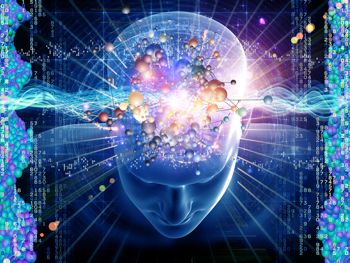A magazine where the digital world meets the real world.
On the web
- Home
- Browse by date
- Browse by topic
- Enter the maze
- Follow our blog
- Follow us on Twitter
- Resources for teachers
- Subscribe
In print
What is cs4fn?
- About us
- Contact us
- Partners
- Privacy and cookies
- Copyright and contributions
- Links to other fun sites
- Complete our questionnaire, give us feedback
Search:
Dial-a-molecule

Making new molecules is a complicated business. It can takes years of effort to work out how to create even a relatively small molecule made up of only a handful of atoms. It matters though because our modern world depends on our ability to make new chemicals. Everything from drugs to plastics depends on it. Industrial chemists would love to be able to just dial in the molecule they were after and have it created by a computer on the spot without having to bother with lots of messy trial and error chemistry. The dream is a simpler version of that sometimes used in science fiction films where you tell the computer you would like an orange juice - so it makes a glass of it on the spot without bothering using oranges! This 'dial-a-molecule' challenge has been taken up by teams of researchers across the UK. If they succeed, it will revolutionise the way everything from cosmetics to hi-tech Olympic swimsuits are made.
The way chemicals are made at the moment is both messy and wasteful. It often involves using a whole series of complicated reactions that need to happen in a specific order. It's a bit like a bunch of people trying to get across a crocodile-infested river where, rather than just wade across in a straight line, they have to jump from stone to stone, zigzagging their way across. Their route is determined by the stepping stones they know about. Ideally chemists would similarly like to just head straight to the desired chemical from the starting chemicals. Instead they work out a route and then jump from compound to compound based on the reactions that can happen. Each extra reaction involved produces unwanted waste products though. In a typical process a thousand times more waste might be created than of the actual chemical wanted. If chemists could use the most direct series of reactions possible, with little or no waste to get rid of, that would not only make the process much cleaner, it would use less energy and be cheaper.
Could electronic engineers help? A team from Queen Mary, University of London led by Rob Donnan are aiming to. They are exploring whether desired molecules can be created by applying specific pulses of electromagnetic energy to a mix of initial chemicals in a way that means that only a precise sequence of reactions happen. The idea is to use really high-powered 'terahertz' radiation - that is radiation with a wavelength less than a millimetre. Recent advances by electronic engineers in building apparatus called a 'vector network analyser' make this potentially possible. It allows precise kinds of radiation to be created in a way that is incredibly finely tuneable. The radiation can be used to activate a given chemical bond in a molecule but not, say, an immediate neighbouring bond. That means specific reactions can be activated avoiding others. The approach can also be used to immediately scan the aftermath of a reaction to work out what chemicals have been created by it for subsequent steps. Rob's team is exploring how easy it is to actually make desired reactions happen.
Whilst the science fiction vision of dialing up your dinner on a computer that is then chemically constructed on the spot is still science fiction, chemists may soon at least be able to dial up specific molecules they want and when it happens it will revolutionize the way chemicals are created industrially. With designer chemicals easy to make the science fiction future of industrially polluted wastelands may be a thing of the past.


